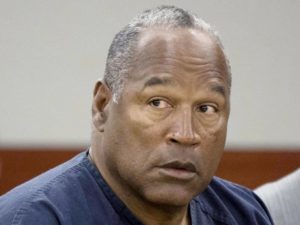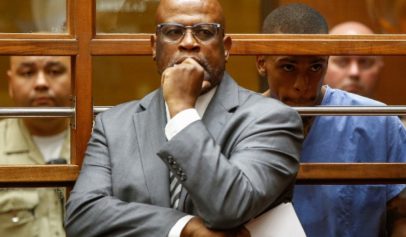O.J. Simpson could be released from prison this year pending the outcome of a parole hearing scheduled for July.
The exact date of the hearing will not be set until mid-June, according to the Nevada Department of Corrections. In 2008, the former football star was sentenced to 33 years in a Nevada state prison based on his conviction on 12 separate counts, including conspiracy to commit a crime, robbery, assault and kidnapping with a deadly weapon.
On Sept. 13, 2007, Simpson, along with five other men, confronted two sports memorabilia dealers in a room at Las Vegas’ Palace Station Hotel and Casino, brandishing weapons but not firing them.
In 2013, Simpson was granted parole on two kidnapping charges, two robbery charges and burglary with a firearm charges stemming from that incident. He still faces time on the remaining charges as some were ordered to run consecutively.
Parole board members will now decide whether to release him on parole, deny parole or deny parole and reconsider the matter at another time, former chairman of the Nevada Board of Parole Commissioners Thomas Patton told NBC News.
Simpson’s attorney Malcolm LaVergne did not return a message asking for comment.
If he is granted parole following the video conference hearing, Simpson could be released as early as October 1 from the Lovelock Correctional Center, about 100 miles northeast of Reno, Nevada Department of Corrections spokeswoman Brooke Keast said. She said the department treats all inmates the same regardless of celebrity status.
“All kinds of things have to happen first,” Keast said regarding the release date.
These charges are unrelated to the infamous California case that occurred 13 years prior in which Simpson was acquitted of the murder of his ex-wife, Nicole Brown Simpson, and her friend Ron Goldman. The televised trial, drew widespread media attention and further exposed racial tensions in the nation. The trial has since become the subject of numerous books, articles, television specials and documentaries. Simpson was later found liable for the deaths in a 1997 civil case.



